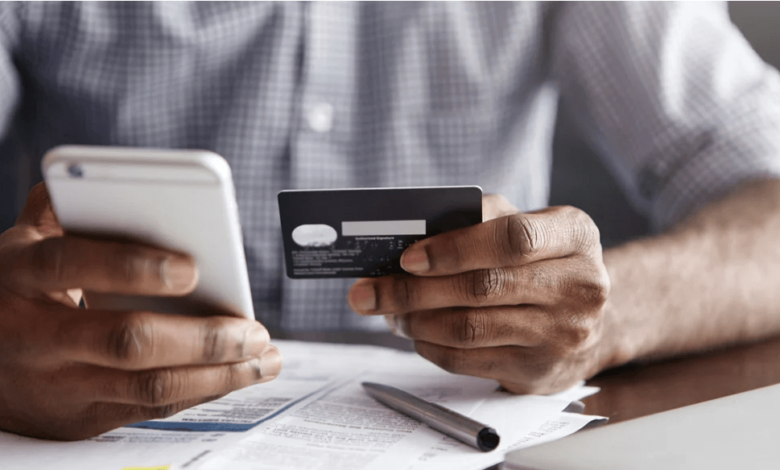what happens if you falsely dispute a credit card charge

They provide us with a convenient way to pay for goods and services without having to carry cash around. However, sometimes things can go wrong, and you may find yourself disputing a credit card charge. While it’s important to dispute any unauthorized or fraudulent charges on your account, falsely disputing a charge could lead to some serious consequences that you may not be aware of. In this blog post, we’ll cover everything you need to know about what happens if you falsely dispute a credit card charge and how to avoid doing so. So sit back, relax, and let’s dive into the world of credit card disputes!
What is a credit card dispute?
A credit card dispute is a process that allows you to challenge a charge on your account that you believe is incorrect or unauthorized. This could be due to a billing error, fraud, or other issues with the transaction.
To file a dispute, you need to contact your credit card issuer and provide them with information about the disputed charge. This may include details about the merchant, date of purchase, and the amount charged. Your issuer will investigate the matter and may request additional documentation from you.
If it’s determined that there was an error in billing or fraudulent activity involved in the transaction, your issuer will remove the charge from your account. However, if they find no evidence of wrongdoing on behalf of the merchant or yourself as a cardholder, they will uphold the original charge.
What happens if you file a false dispute a credit card charge?
Filing a false dispute can have serious consequences, both legally and financially. If you file a dispute without valid reason or knowingly provide false information in your complaint, it is considered fraud. Credit card companies take this matter seriously and will investigate any suspicious claims thoroughly.
If the credit card company discovers what happens if you falsely dispute a credit card charge, they may close your account and report the incident to credit bureaus, which could result in damage to your credit score.
In addition to these financial consequences, filing a false dispute could also lead to legal repercussions. It is illegal to make fraudulent claims against a company and doing so could result in charges being filed against you.
To avoid these negative outcomes, make sure that you only file disputes when there is an actual issue with the transaction. Always provide accurate and truthful information in your complaint and be prepared to provide evidence if necessary.
How to file a dispute correctly
Filing a dispute for a credit card charge can be quite overwhelming, especially if it is your first time. However, the process of filing one correctly can be broken down into several simple steps.
The very first step is to read through your credit card statement thoroughly and identify any charges that you believe are incorrect or fraudulent. Once you have identified these charges, gather all relevant documentation such as receipts and invoices to support your claim.
Next, contact the merchant or service provider directly and try to resolve the issue with them. If this fails, contact your credit card issuer’s customer service department and inform them of the situation. They will then guide you through the process of filing an official dispute.
When filing a dispute, make sure to provide all necessary details including dates, amounts charged and reasons for disputing each charge. It is also important to keep track of all communication between yourself, the merchant/service provider and your credit card issuer throughout the process.
While filing a dispute may seem daunting at first glance, following these simple steps can help ensure that you file one correctly without making any mistakes along the way.
How to avoid filing a false dispute
To avoid filing a false dispute, it’s crucial to keep track of your credit card transactions. Regularly reviewing your statements can help you identify any erroneous charges and resolve them with the merchant directly. Additionally, make sure to read the terms and conditions of any services or subscriptions you sign up for as some may have automatic recurring charges.
It’s also important to communicate clearly with merchants regarding any issues before initiating a dispute. If there is an error or problem with the product or service purchased, reach out to the seller first before disputing the charge with your bank.
When filing a dispute, provide accurate information and evidence to support your claim. This includes receipts, invoices, emails or other forms of communication between you and the merchant. Be specific in explaining why you believe the charge is incorrect and what steps you took previously to try resolving it with the seller.
Always ensure that you follow proper procedures when submitting a dispute through your bank. Filing multiple disputes for one transaction can be seen as fraudulent activity by both banks and merchants alike – so make sure that every disputed charge is legitimate! Read more…
Conclusion
What happens if you falsely dispute a credit card charge is an important step to take when you have been charged for a transaction that you did not authorize or receive. However, it is crucial to ensure that the dispute filed is valid and accurate.
Therefore, before filing a dispute make sure that you have thoroughly reviewed your billing statements and attempted to resolve any issues with the merchant directly. If you are unable to reach a resolution then proceed with filing the dispute but be sure to provide all necessary documentation and accurate information.
Keeping these things in mind will help protect yourself from making false disputes which could ultimately harm your financial standing.
